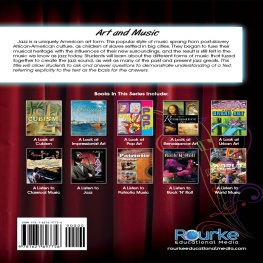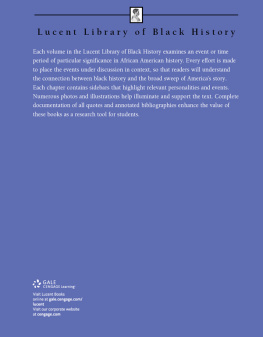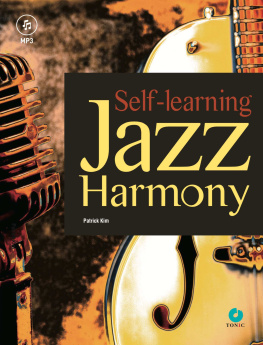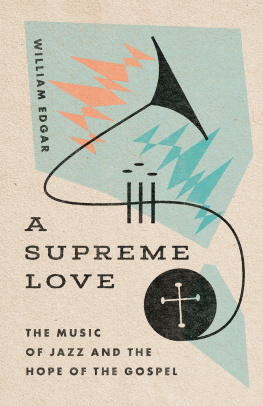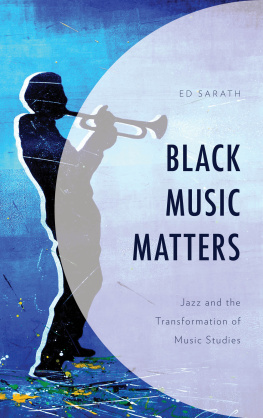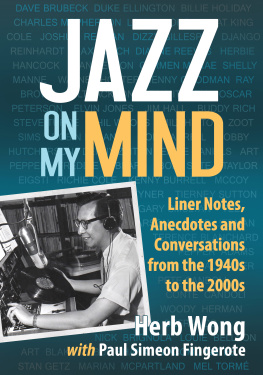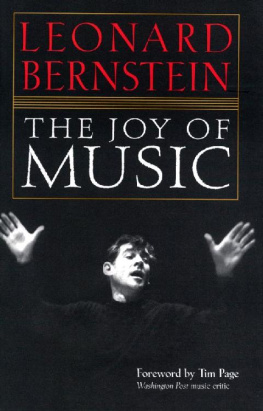Ben Ratliff - The Jazz Ear: Conversations Over Music
Here you can read online Ben Ratliff - The Jazz Ear: Conversations Over Music full text of the book (entire story) in english for free. Download pdf and epub, get meaning, cover and reviews about this ebook. year: 2009, publisher: St.Martins, genre: Detective and thriller. Description of the work, (preface) as well as reviews are available. Best literature library LitArk.com created for fans of good reading and offers a wide selection of genres:
Romance novel
Science fiction
Adventure
Detective
Science
History
Home and family
Prose
Art
Politics
Computer
Non-fiction
Religion
Business
Children
Humor
Choose a favorite category and find really read worthwhile books. Enjoy immersion in the world of imagination, feel the emotions of the characters or learn something new for yourself, make an fascinating discovery.

- Book:The Jazz Ear: Conversations Over Music
- Author:
- Publisher:St.Martins
- Genre:
- Year:2009
- Rating:4 / 5
- Favourites:Add to favourites
- Your mark:
- 80
- 1
- 2
- 3
- 4
- 5
The Jazz Ear: Conversations Over Music: summary, description and annotation
We offer to read an annotation, description, summary or preface (depends on what the author of the book "The Jazz Ear: Conversations Over Music" wrote himself). If you haven't found the necessary information about the book — write in the comments, we will try to find it.
The Jazz Ear: Conversations Over Music — read online for free the complete book (whole text) full work
Below is the text of the book, divided by pages. System saving the place of the last page read, allows you to conveniently read the book "The Jazz Ear: Conversations Over Music" online for free, without having to search again every time where you left off. Put a bookmark, and you can go to the page where you finished reading at any time.
Font size:
Interval:
Bookmark:
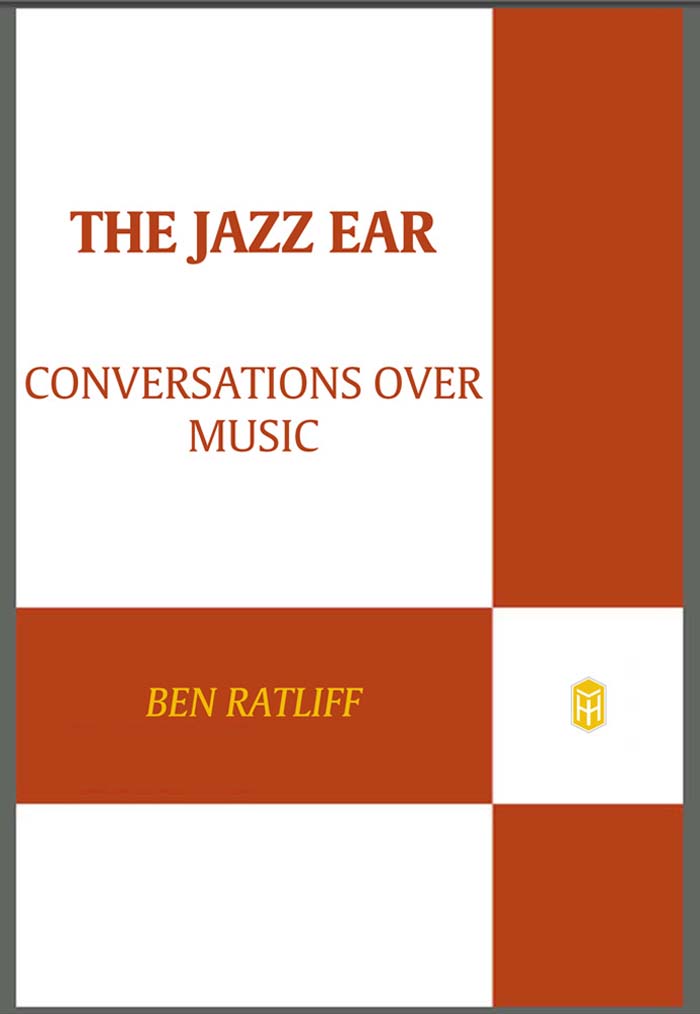
Praise for The Jazz Ear
Luminous... Ben Ratliff is the rare critic who can hold his own in conversation with musicians and incite them to reveal how they think and work.
A LEX Ross, author of The Rest Is Noise
Remarkable... The Jazz Ear is a must read.... Ratliff gives any music lover a unique insight to the exclusive world of jazz musicians.
The Idaho Statesman
Ratliff is infinitely knowledgeable... fluid, inspired and, well, jazzy.
Fader
With his probing, empathetic questions and wide-ranging musical knowledge, Ben Ratliff elicits insightful, profound, and revealing remarks from some of the most significant musicians of our time.
R ICHARD B RODY , author of Everything Is Cinema
In the jazz world, the ability to hear, conceptualize, compose or improvise with idiosyncrasy and sophistication requires big ears. Ben Ratliff is one of Americas best and biggest-eared music journalists. Mr. Ratliffs questions often steer his responders from music theory to emotional response to sentimental remembrance, teaching readers how to open their ears and listen in new ways. For music enthusiasts wishing for bigger, better ears, Mr. Ratliffs interviews trace crossing pathways to new ways of listening to and enjoying jazz.
The Dallas Morning News
Ideal... a sort of next step up into the magic of jazz... the conversations can become existentialist or metaphysical, for the musicians are very smart and sensitive.
Booklist (starred review)
Ratliff asked musicians to get together some recordingsnot their desert-island discs, not their top five, just music theyd be interested in talking about. [He is] a passionate and incisive writer about music.
The Boston Phoenix
Splendid.
Buffalo News
Revelatory... Ratliffs own ear, sharp critical chops and scene-setting interaction with his subjects make the artists come alive.
Kirkus Reviews
Each chapter brings provocative insights.... Whether youre a seasoned listener or just discovering the form, Ratliff is a wonderful guide.
Publishers Weekly
Ratliffs book stands out.... [The Jazz Ear] admirably provides an unpretentious and reader-friendly window into jazz esthetics.
Ottawa Citizen
[In The Jazz Ear], luminaries ranging from Pat Metheny to Hank Jones, drawn out by Ratliffs sympathetic and seemingly all-knowing ear, give eloquent collective testimony to the wellsprings of the musicians art.
The Gazette (Montreal)
Admirers of jazz should be deeply thankful for [Ben] Ratliff.... The treasure of these conversations is not just their fluid and intimate manner but their focus on the recordings that had the greatest influence on the artists and their musical paths.
Library Journal (starred review)
Also by Ben Ratliff
Coltrane: The Story of a Sound
The New York Times Essential Library: Jazz
Ben Ratliff
Times Books
Henry Holt and Company
New York
Jazz
Ear
Conversations
Over Music

Times Books
Henry Holt and Company, LLC
Publishers since 1866
175 Fifth Avenue
New York, New York 10010
www.henryholt.com
Henry Holt is a registered trademark of Henry Holt and Company, LLC.
Copyright 2008 by Ben Ratliff
All rights reserved.
Distributed in Canada by H. B. Fenn and Company Ltd.
Closer and Closer Apart written by Mary Chapin Carpenter, 2007 Why Walk Music
(ASCAP). All rights reserved. Used by permission.
Some material in this book previously appeared, in slightly different form, in The New York Times.
Library of Congress Cataloging-in-Publication Data
Ratliff, Ben.
The jazz ear: conversations over music / Ben Ratliff.1st ed.
p. cm.
Includes bibliographical references and index.
ISBN: 978-0-8050-9086-4
I. Jazz musiciansInterviews. I. Title.
ML394.R38 2008
781.65092'2dc22
2008010122
Henry Holt books are available for special promotions and premiums.
For details contact: Director, Special Markets.
Originally published in hardcover in 2008 by Times Books
First paperback edition 2009
Designed by Meryl Sussman Levavi
Printed in the United States of America
10 9 8 7 6 5 4 3 2 1
Again for K, H, and T
About fifteen years ago I was spending the afternoon near Times Square at the apartment of Frank Lowe, the onetime free-jazz saxophonist. By this time, though, Lowe was in his middle-aged, Lucky Thompsonworshipping period; all he wanted to do was play murmuring art-deco phrases on his tenor.
Let me briefly describe Frank Lowe. He was a black man with short dreadlocks, tall, skinny, broad-shouldered, and high-cheekboned; streetwise, charming, and slightly bitter. The late 1960s and 1970s had raised some very tough jazz players, who worked through the musics hardest winter of audience neglect. As a result, Lowe had lived in a weird little underground economy for twenty years. He was considered to be on the sentimental and soulful end of the avant-garde, but much of his work still turned away from the mainstream of jazz.
The culture of jazz had changed since he had started performing in the late 1960s. At first he had been an extremist; one of his early records, Black Beings, is like drums-and-saxophone scream therapy. He then discovered a way to bring into his work the R & B of his hometown, Memphis, Tennessee, and his music warmed up. He became drawn to the authority and romance of older players in jazz: Lester Young, Coleman Hawkins. By his midforties, when I met him for the first time, I sensed two things: that he knew what kind of saxophonist he wanted to be; and that it might already be too late in his life to get there.
I was young, and he wasnt working much. Both of us had time on our hands. Day turned into night. We went out for Chinese food on Ninth Avenue and came back. He wanted to share some music with me that hed been listening to.
He dug up two cassettes of records that were new at the time: Abbey Lincolns You Gotta Pay the Band and Joe Hendersons Lush Life. The Joe Henderson, particularly, because he wanted to listen to the tracks with Wynton Marsalis playing the trumpet. Hed been paying attention to Marsalis lately, Lowe said. He believed that Marsalis was starting to deliver on his promise.
If you listened to Lowe run down his own potted history, you might make a particular kind of assessment about him. That he rejected current mainstream jazz, wasnt impressed by it anymore, was irritated by its slickness. I was interviewing him, writing about him for a little magazine, and if we had adjourned before just shutting up and listening, the article would have come out differently. The fact is that when we listened to music together, I saw what a shallow caricature that potential assessment was. Lowe had nice ears. I watched his instant reactions to Lincoln and Henderson and Marsaliscertain kinds of phrasing or harmonyand I was understanding him better than I had all day. We werent talking about the daily grind anymore, and I saw a great side of him.
One way to interview a musician, I have found, is to talk about subjects that dont really matter, which could include his or her new record. I mean that they dont matter if the resulting exchanges end up benefiting a lot of other people besides the musician: the employees and shareholders of the record label, the publicists paid to create an international conversation, the critics paid to review the record, the secondhand merchants who resell copies on eBay, and finally the operatives of the waste-processing plants who after some years must destroy the remaining, unsellable stock.
Font size:
Interval:
Bookmark:
Similar books «The Jazz Ear: Conversations Over Music»
Look at similar books to The Jazz Ear: Conversations Over Music. We have selected literature similar in name and meaning in the hope of providing readers with more options to find new, interesting, not yet read works.
Discussion, reviews of the book The Jazz Ear: Conversations Over Music and just readers' own opinions. Leave your comments, write what you think about the work, its meaning or the main characters. Specify what exactly you liked and what you didn't like, and why you think so.

